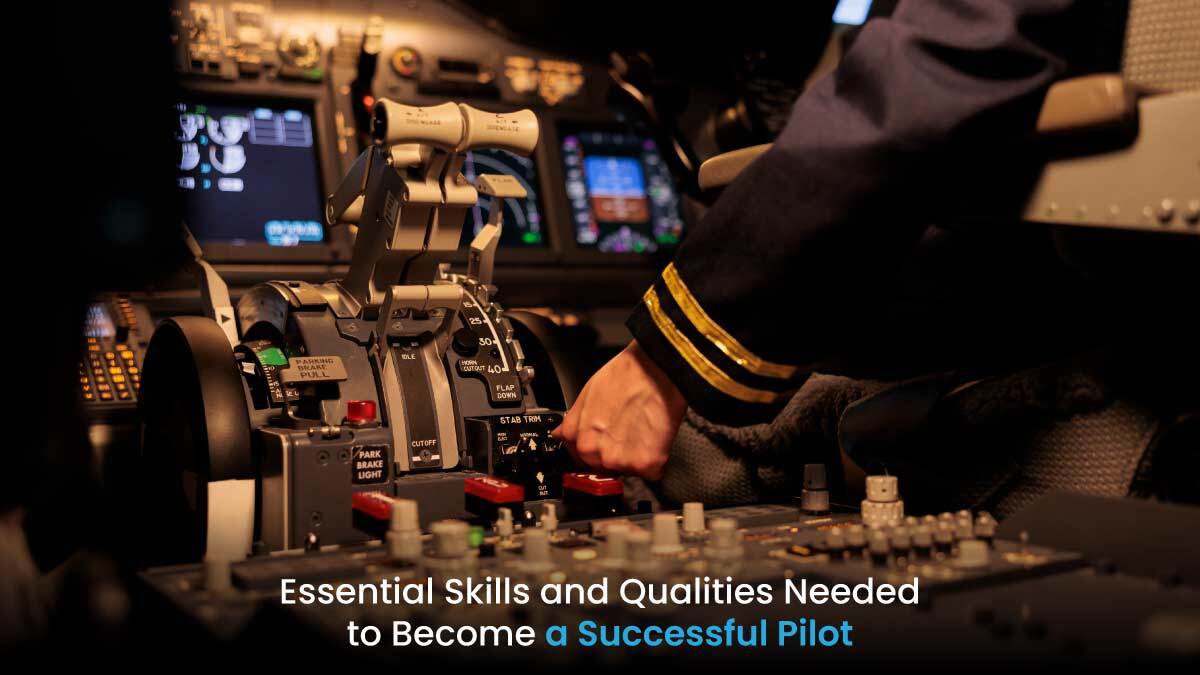
Becoming a pilot isn’t merely about ticking off flight hours; it’s about cultivating a unique blend of skills and traits that set you apart. The qualifications to become a pilot include adapting to changing weather patterns like a seasoned pro, radiating calm under pressure, and leading your team with confidence. A pilot’s journey is a constant quest for knowledge, fueled by an unyielding passion for aviation and an unwavering commitment to safety. Here are the requirements to become a pilot and the qualities you need to succeed in this demanding profession.
Technical Proficiency
Think of a pilot as a high-flying multitasker, juggling complex aircraft systems while keeping a cool head amidst the clouds. The aircraft pilot qualifications are the need for a sharp mind for math and science, lightning-fast reflexes, and the ability to make split-second decisions when the stakes are high. It’s about staying laser-focused even when turbulence hits and communicating seamlessly with air traffic control and your crew. Insight Aviation is a world-renowned FTO which can upskill your technical skills and train you to be a sound pilot with the following skills:-
- In-depth Knowledge of Aerodynamics: Understanding how aircraft operate, including the principles of flight, is crucial. Pilots must grasp concepts such as lift, drag, and thrust, and how they interact with weather conditions.
- Navigation Skills: Mastery of navigation tools and techniques, from traditional compass and maps to advanced GPS systems, is essential. Pilots must be able to plot courses and adjust for variables like wind and turbulence.
- Aircraft Systems Expertise: Pilots must be familiar with the mechanics of the aircraft, including engines, electrical systems, and avionics. They must be able to diagnose and address technical issues mid-flight.
Strong Communication Skills
Pilots must communicate effectively with air traffic control, crew, and passengers. This requires conveying information clearly and concisely, especially in high-pressure situations. For international pilots, proficiency in multiple languages can be a significant asset, helping to bridge communication gaps in different regions.
Analytics and Decision-Making Skills
Pilots often face unexpected challenges, such as sudden weather changes or mechanical failures. The ability to make rapid decisions leads to problem-solving. They must analyse data from various instruments, assess situations, and determine the best course of action, often under time constraints.
Flight Monitoring Skills
Every flight begins with meticulous checks. Pilots must ensure every aspect of the aircraft is in optimal condition, from fuel levels to control surfaces. Continuous monitoring of instruments and systems during flight is essential to detect any irregularities early.
Physical and Mental Stamina
Long-haul flights, irregular hours, and the physical demands of controlling an aircraft require pilots to have excellent physical stamina. They must remain calm and focused, even during extended periods of stress or when facing emergencies.
Situational Awareness
Pilots must have a keen sense of their environment and understand their position relative to the ground, other aircraft, and navigational aids. A successful pilot always thinks ahead, anticipates potential issues, and plans accordingly.
Leadership and Teamwork
Pilots are responsible for the safety of everyone on board. This requires strong leadership skills and the ability to make authoritative decisions. While pilots often work with co-pilots and crew, they must foster a collaborative environment where everyone’s input is valued.
Adaptability to Change
The rules and technology associated with aviation are always changing. Pilots must commit to ongoing education and staying current with the latest developments. Pilots must be adaptable and ready to learn, Whether flying a new type of aircraft or navigating unfamiliar airspace.
Emotional Intelligence
Understanding and managing the emotions of passengers and crew, especially in stressful situations, is important for maintaining morale and calm. Pilots must maintain composure, even when faced with frustrating or challenging circumstances.
Passion for Aviation
A genuine passion for flying drives pilots to excel and overcome the challenges of the profession. Above all, successful pilots are deeply committed to safety, prioritising it in every decision they make.
Becoming a successful pilot is long and challenging, but those who possess and cultivate these essential skills and qualities will find it a rewarding career. Join Insight Aviation’s IndiGo Cadet Pilot Programme and learn the art of flying. With extensive training and your passion for aviation, Insight Aviation can make your dreams come true.
FAQs
Q. What are the most important skills a pilot needs?
A. Technical, analytical, decision-making, communication and physical skills are the most important skills for a successful pilot.
Q. What personal qualities are essential for a pilot?
A. Personal qualities such as a positive attitude to learning new things and situational awareness can make a pilot make the right decisions in intense situations.
Q. Which subject is most important for the pilot?
A. All the subjects are equally important in the pilot training. The critical one to learn is Aviation meteorology, the study of weather phenomena that impact flying.

